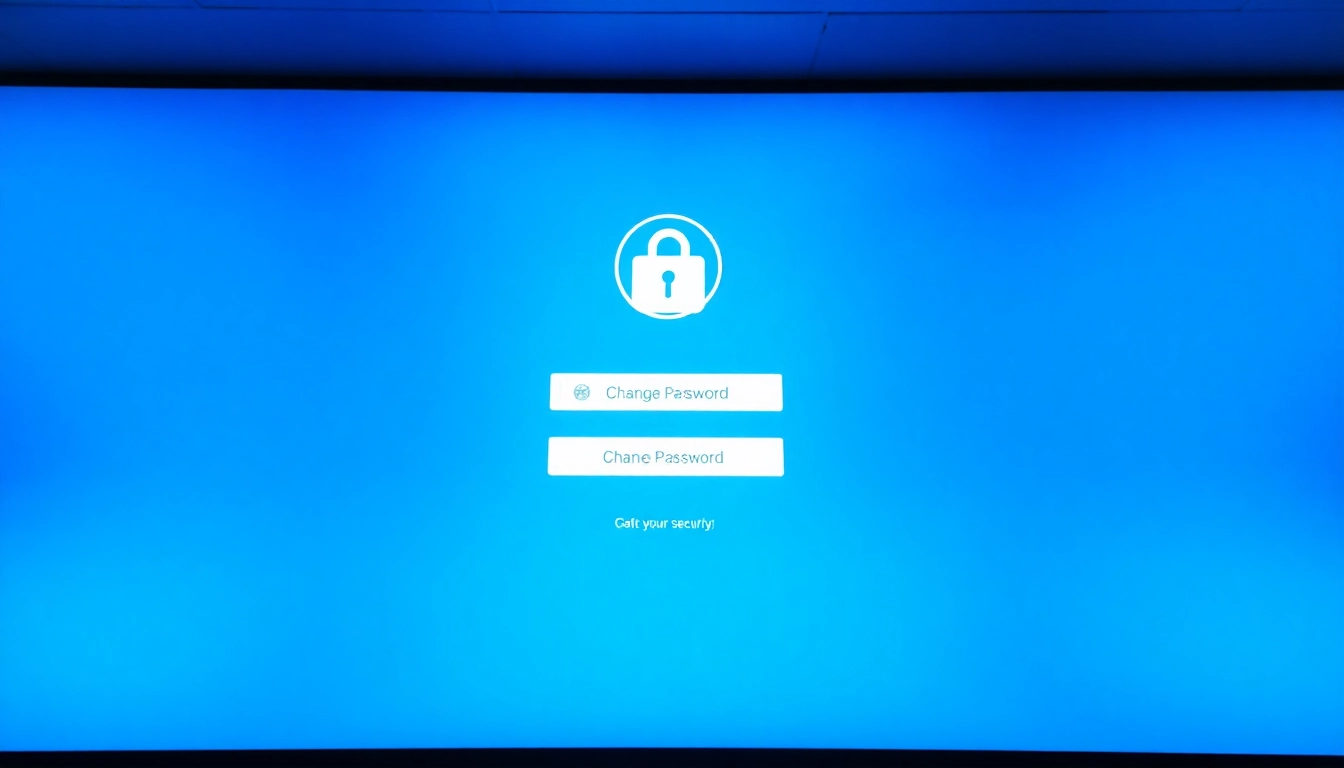Understanding Lotus365 Account Security
Importance of Regular Password Updates in Lotus365
In today’s digital landscape, securing your online betting and gaming accounts like those on Lotus365 is more critical than ever. Regularly updating your password is a fundamental security practice that helps protect your personal information, financial details, and betting activities from unauthorized access. Cyber threats evolve rapidly, with hackers constantly developing new methods to breach accounts. By changing your password periodically, you minimize the risk of longstanding vulnerabilities being exploited. Experts recommend updating passwords at least every 60 to 90 days, especially if you suspect any suspicious activity or suspect that your login details may have been compromised.
Furthermore, in the context of Lotus365, which involves sensitive financial transactions, ensuring robust account security is key to maintaining trust and avoiding potential financial losses. Regular password updates act as a first line of defense, making it substantially harder for malicious actors to gain entry and access your betting history, personal data, or perform unauthorized transactions.
Key Features of Lotus365 Security Measures
Lotus365 implements several advanced security measures to safeguard user accounts. These include encryption protocols that secure data transmission, secure server infrastructure, and rigorous access controls. The platform supports multi-layer authentication to add an extra level of security—specifically, two-factor authentication (2FA), which requires users to provide a second verification step, such as a code sent to their mobile device.
The platform also employs intelligent monitoring systems that detect and flag suspicious account activity. For example, multiple failed login attempts, unusual transaction patterns, or access from unfamiliar IP addresses trigger alerts or temporary account lockouts. These measures collectively help deter hacking attempts and unauthorized access, protecting both your betting experience and financial information.
Common Security Challenges and Solutions
Despite these robust features, users face common challenges such as weak passwords, phishing attempts, and careless sharing of login credentials. Weak passwords—like simple sequences or easily guessable combinations—are a major vulnerability. Phishing emails or fake login pages can trick users into revealing their login details. To combat these issues:
- Always create complex passwords combining uppercase, lowercase, numbers, and special characters.
- Avoid reusing passwords across different platforms.
- Be cautious about unsolicited emails requesting your login information; always verify the source.
- Enable 2FA wherever possible to add an extra layer of protection.
Regularly reviewing your account activity for any unauthorized access or transactions is also essential. Early detection allows prompt action to mitigate potential damages and maintain your account’s integrity.
Step-by-Step Guide to Changing Your Lotus365 Password
Accessing the Password Reset Section
To initiate a password change, log into your Lotus365 account via the official platform or the dedicated app. Once logged in, navigate to the account settings, usually accessible through your profile icon or menu. Within account settings, locate the security or password management section. Often, you will find a “Change Password” or “Reset Password” option prominently displayed.
If you are unable to access your account, proceed to the login page and select the “Forgot Password” link. This initiates the password reset process, which typically involves email verification.
Verifying Your Identity for Password Change
Security protocols mandate verifying your identity to prevent unauthorized changes. This process may include entering your current password, receiving a verification code via email or SMS, or answering security questions set during registration. For enhanced security, Lotus365 may also require biometric verification if available on your device.
Follow the prompts carefully. For example, after requesting a password reset, check your registered email inbox for a verification link or code, and ensure it is entered correctly to proceed.
Setting a Strong and Unique Password
When creating a new password, aim for a high level of complexity and uniqueness. Use a combination of uppercase and lowercase letters, numbers, and symbols. A strong password might look like “L0tus#2024!Secure”. Avoid easily guessable information such as birthdays, names, or common words.
Consider using password managers to generate and store complex passwords securely. This ensures you don’t have to remember multiple intricate passwords, reducing the temptation to reuse or write down passwords insecurely.
Changing User ID on Lotus365: Procedures and Precautions
When and Why to Update Your User ID
Typically, user IDs are set during registration and are used as a primary identifier for logging in. However, users might need to update their User ID due to security concerns, personal preferences, or account organization. For example, if you suspect your User ID has been compromised or wish to align it with a new branding or identity, updating it can often be beneficial.
It’s important to note that some platforms restrict changing User IDs to protect account integrity, so verifying Lotus365’s policies before attempting any changes is crucial.
Process for Changing User ID Safely
To change your User ID on Lotus365, log into your account and navigate to account settings or profile management. Check if the platform permits User ID modifications—if it does, you will find an option to edit or update your User ID.
Before making changes, ensure that you are doing so from a secure device and internet connection. Confirm your current password or complete any required verification steps to authorize the change.
After updating, log out and back in with your new User ID to verify the update was successful and that your account functions correctly.
Tips to Maintain Confidentiality Post-Change
Once you’ve updated your User ID, protect it by not sharing it publicly or with third parties. Avoid storing it insecurely where it can be easily accessed. Regularly monitor your account activity for any unauthorized or suspicious actions.
Additionally, ensure your account is secured with a strong password and Two-Factor Authentication (2FA), especially after changing sensitive identifiers like User IDs. These steps will further shield your account from potential security threats.
Best Practices for Managing Your Lotus365 Account
Password Security Tips for Lotus365 Users
Strong passwords are the cornerstone of account security. Use unique combinations that are not used elsewhere, and update them regularly. Avoid common passwords such as “password123” or “admin2024”. Incorporate randomness and complexity, leveraging password generators if necessary.
Change your password immediately if you suspect it has been compromised, or after a security breach. Remember to log out of all devices when changing your password to prevent session hijacking.
Using Two-Factor Authentication Effectively
2FA adds an extra layer of security by requiring a second form of verification, often a one-time code sent via SMS or generated by an authenticator app like Google Authenticator or Authy. Enabling 2FA on Lotus365 ensures that even if your password is compromised, your account remains protected.
To maximize 2FA effectiveness, keep your authentication device secure and avoid sharing verification codes. Regularly review and update your authentication methods to adapt to any changes in your security setup.
Monitoring Account Activity for Suspicious Behavior
Regularly review your transaction history and login activity through your account dashboard. Many platforms, including Lotus365, offer activity logs that display recent logins, device information, and IP addresses.
Set up alerts for suspicious activity when available. Promptly report any unauthorized access to Lotus365 support for swift action, such as changing your password and verifying account security measures.
Troubleshooting Common Issues During Password/User ID Update
Unable to Reset Password or Change User ID
Sometimes, users encounter issues such as not receiving the verification email, error messages during the process, or restrictions on changing their User ID. These problems can stem from server issues, incorrect contact information, or account restrictions.
To resolve such issues, double-check your registered email or contact details, ensure your network connection is stable, and clear browser caches or try different browsers. As a last resort, proceed to the account recovery options.
Navigating Account Recovery Options
If password reset options are unavailable or ineffective, utilize Lotus365’s account recovery procedures. This may involve submitting identity verification documents or contacting customer support directly. Keep any relevant identification handy to expedite the process.
Contacting Lotus365 Support for Assistance
When faced with persistent issues, reaching out to Lotus365’s customer support ensures professional assistance. Use official channels such as their support email, live chat, or telephone support options available on their website or app.
Provide detailed information about your issue, including account details and the steps you’ve already taken. Support teams typically respond promptly and guide you through resolving your login challenges securely and efficiently.



















